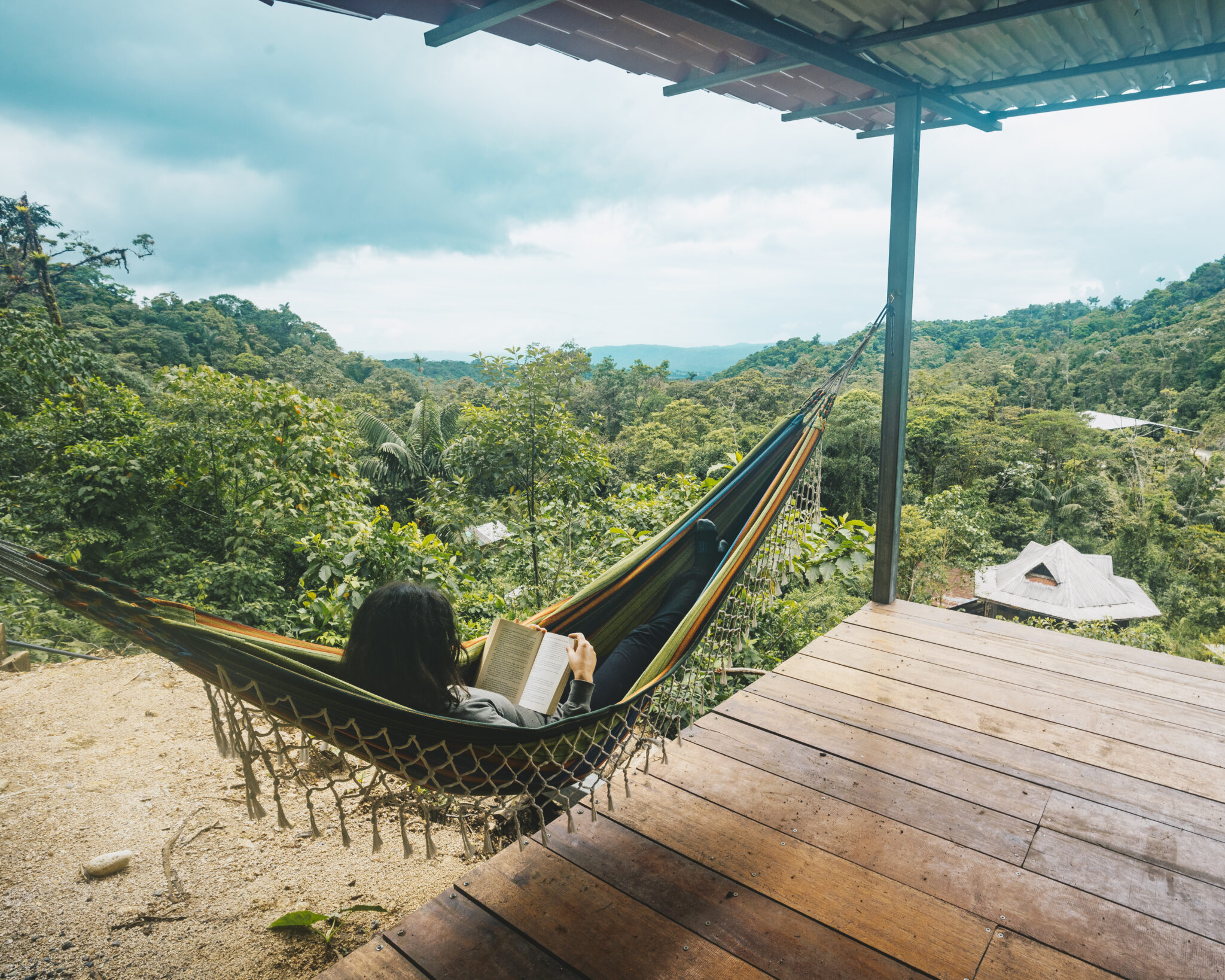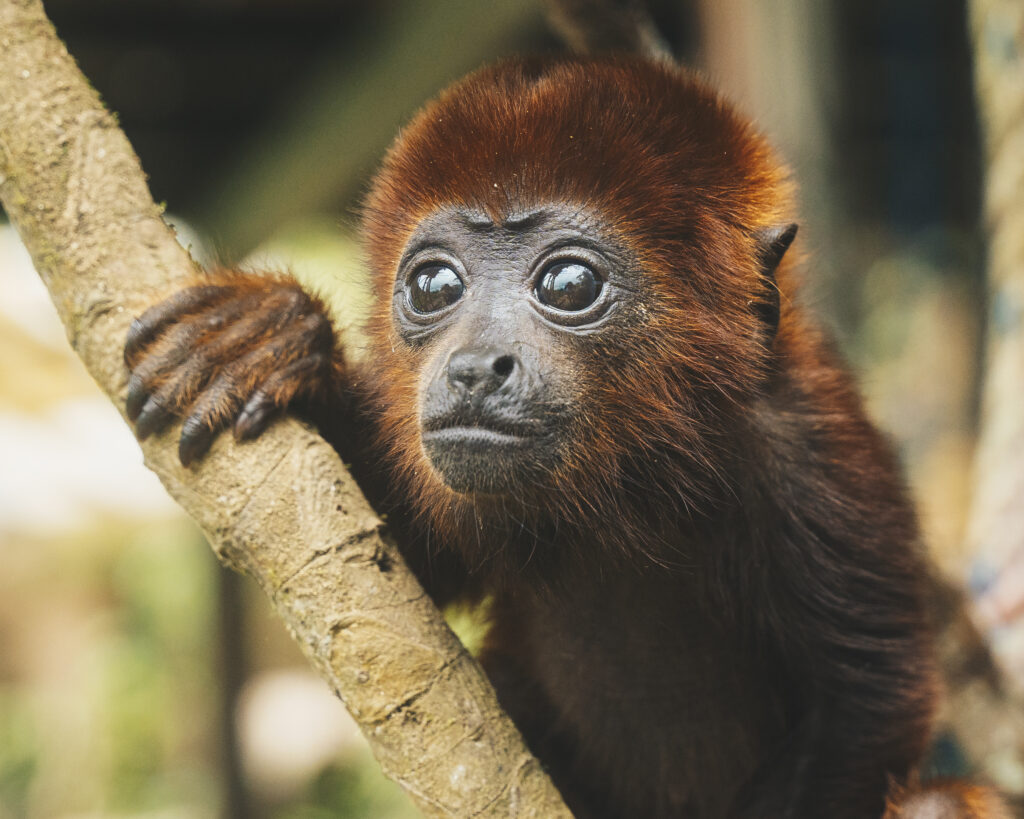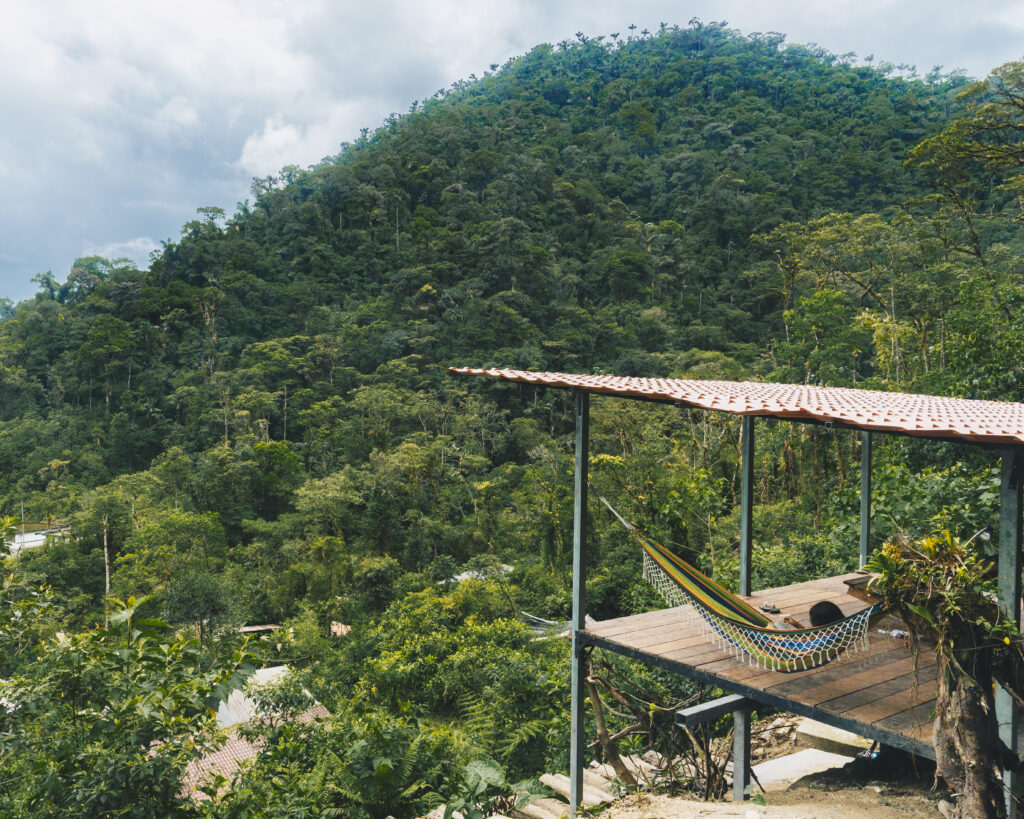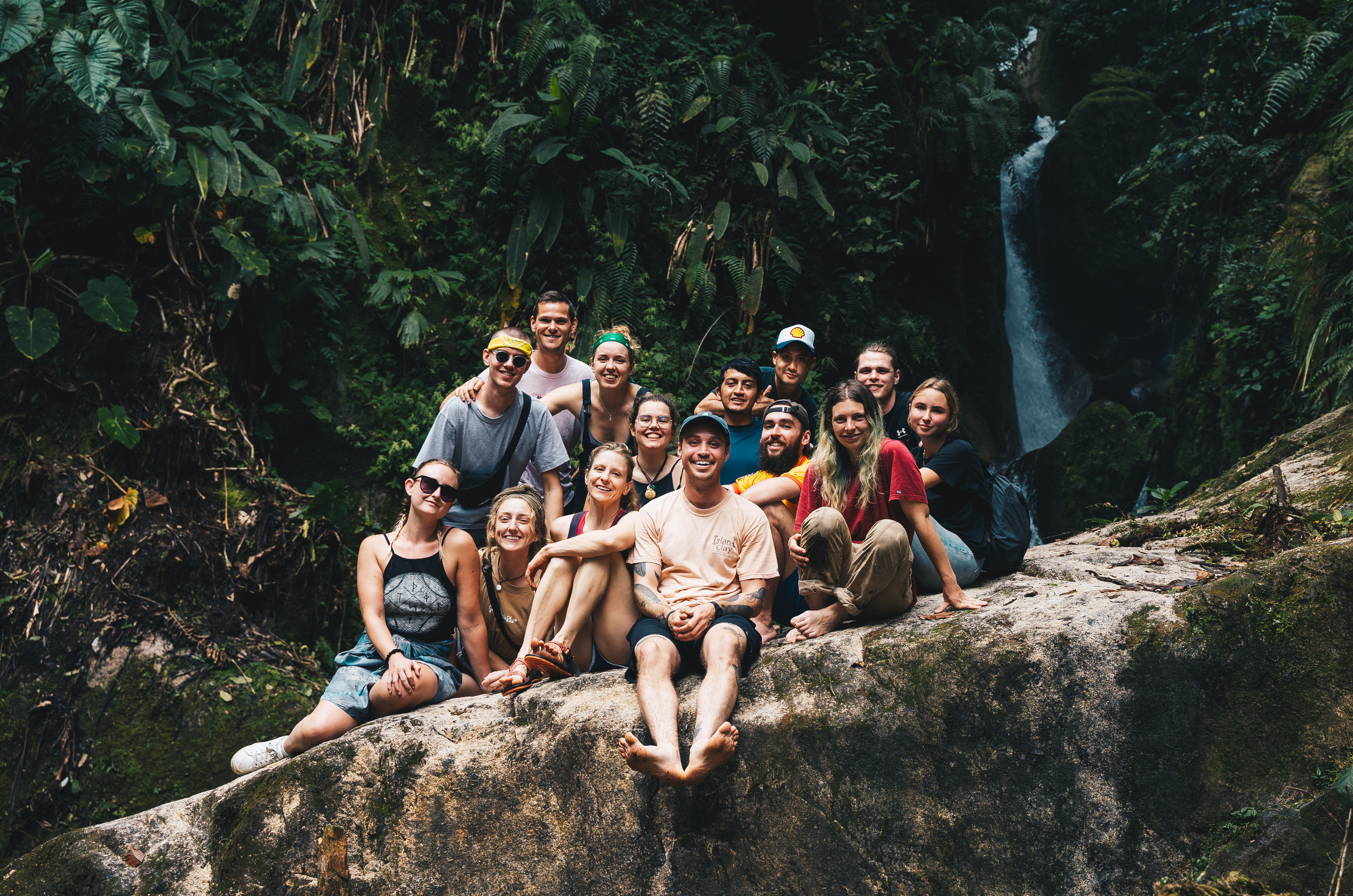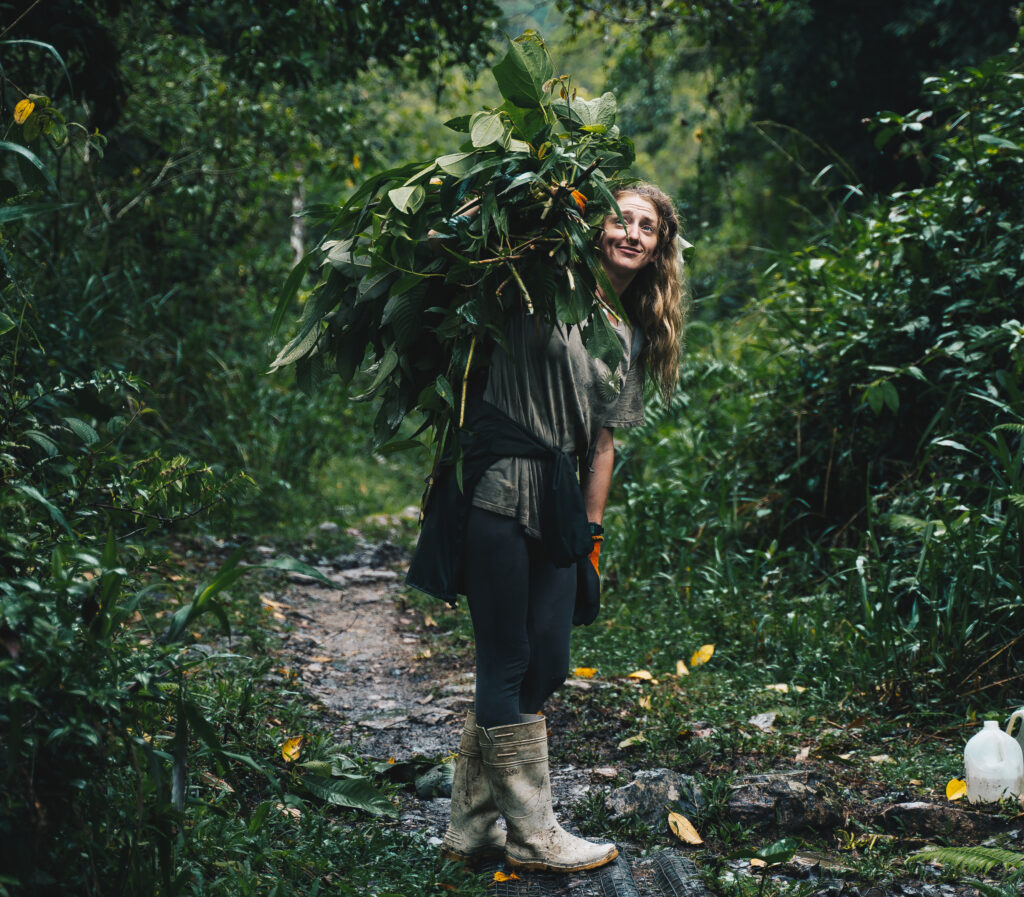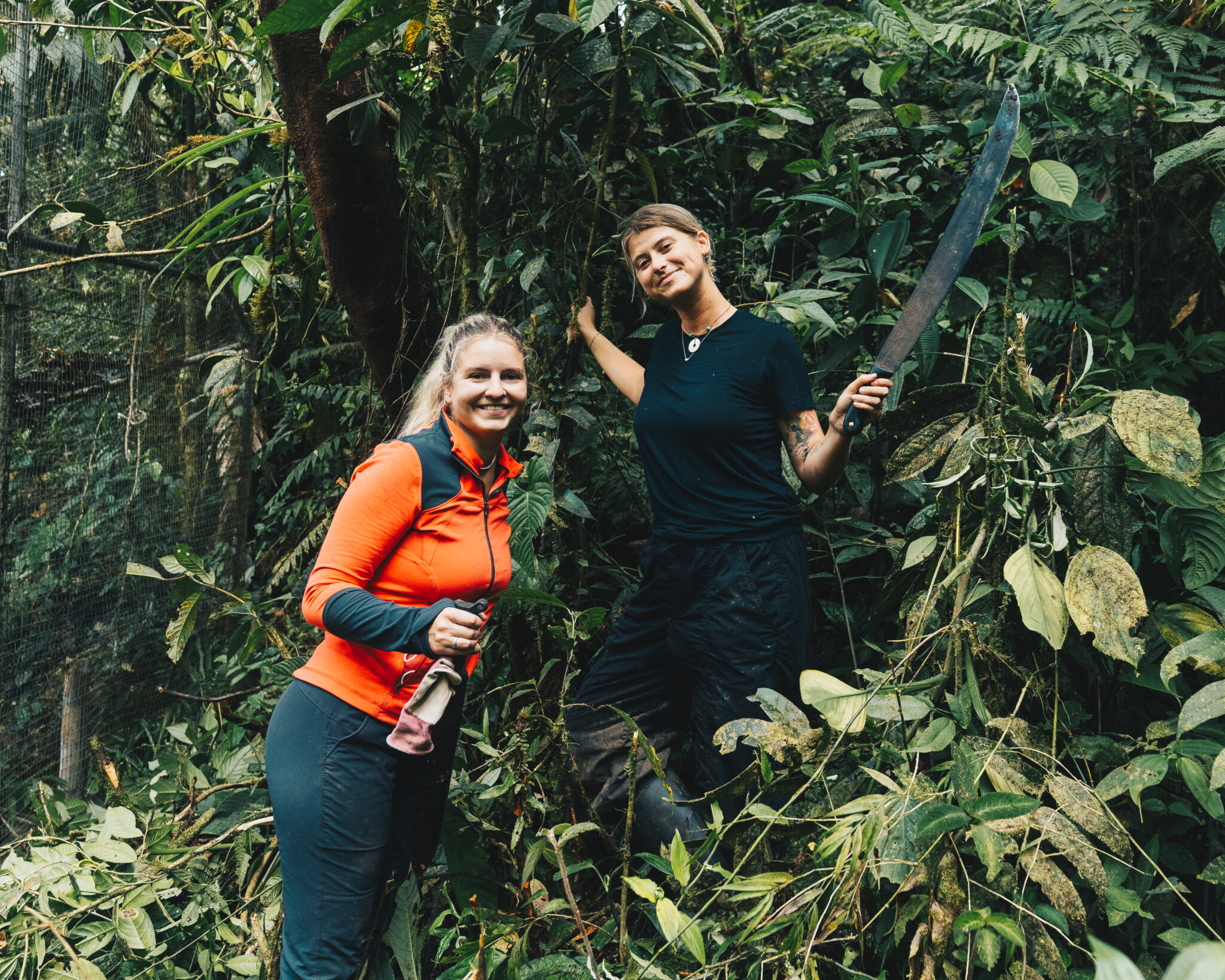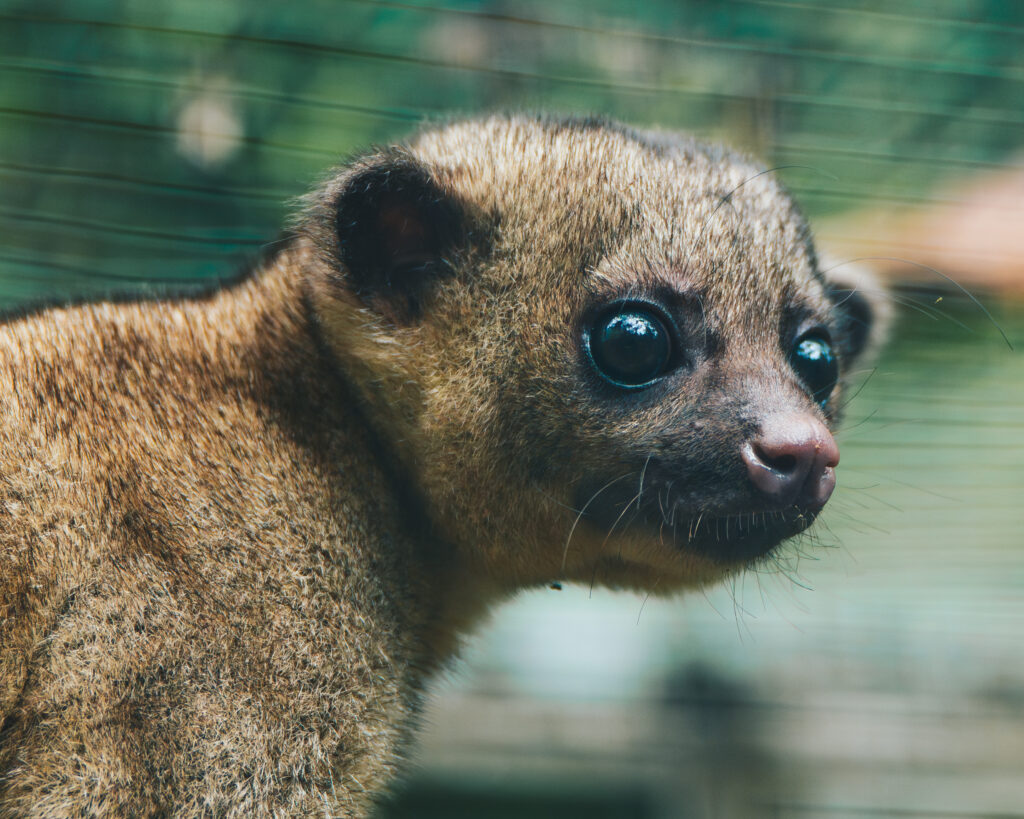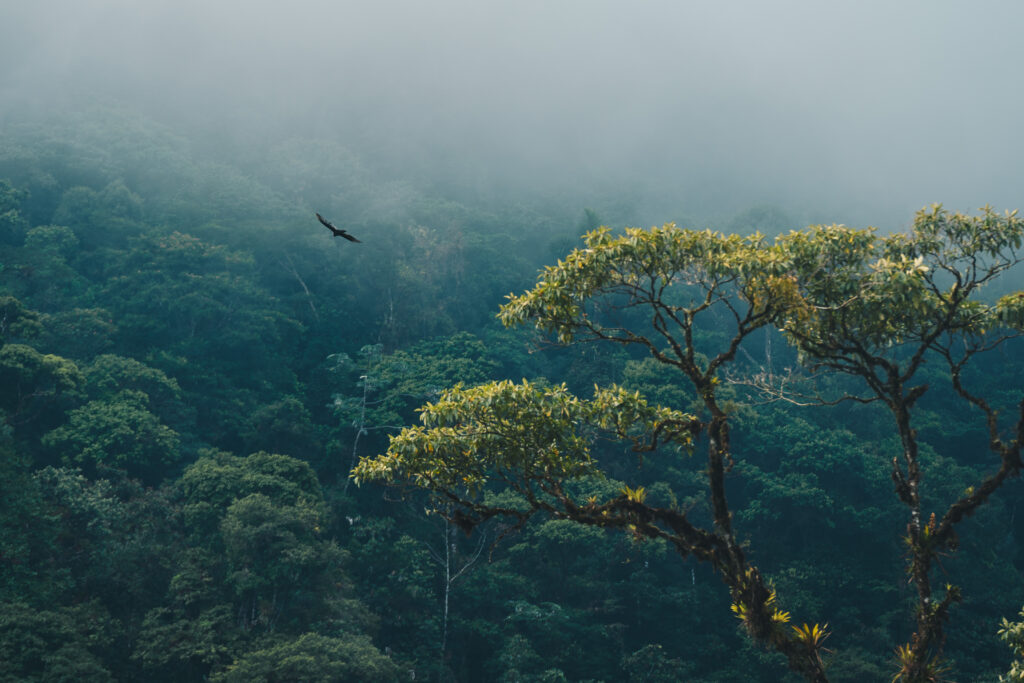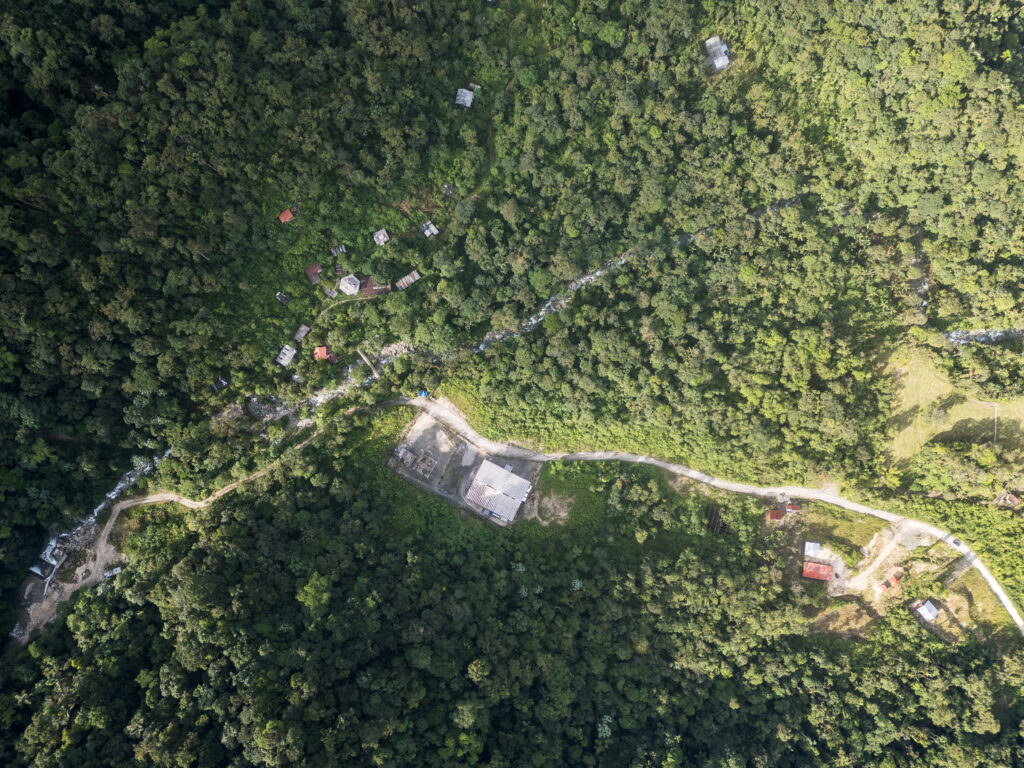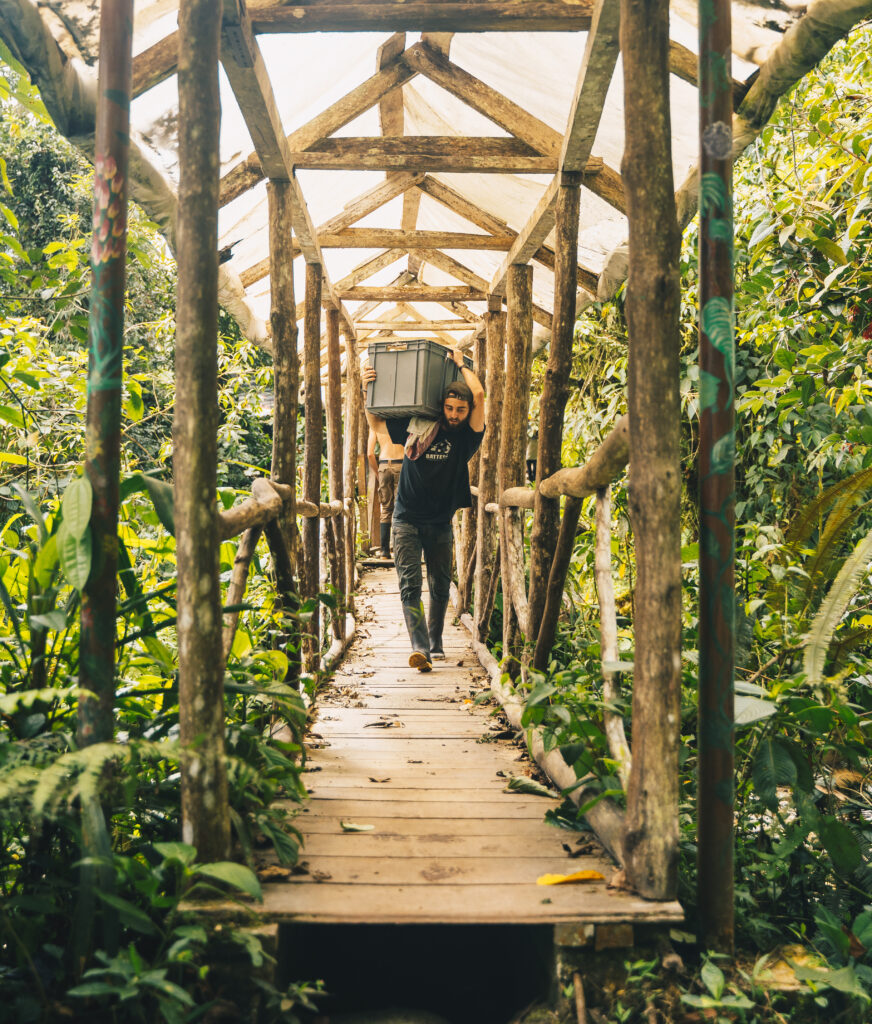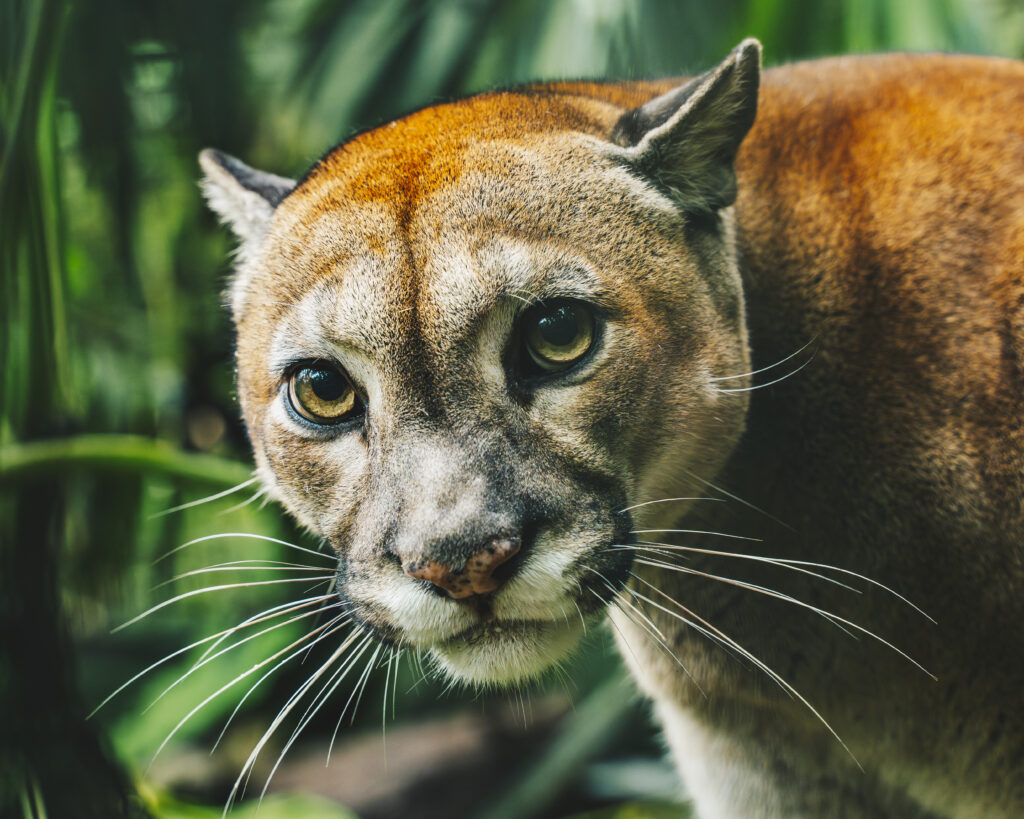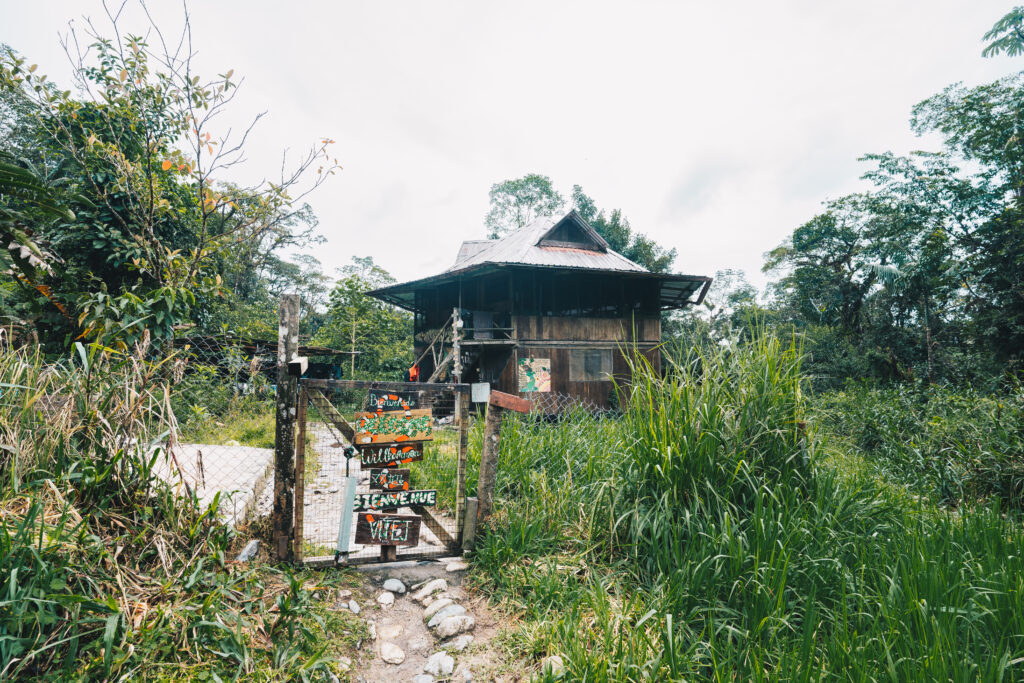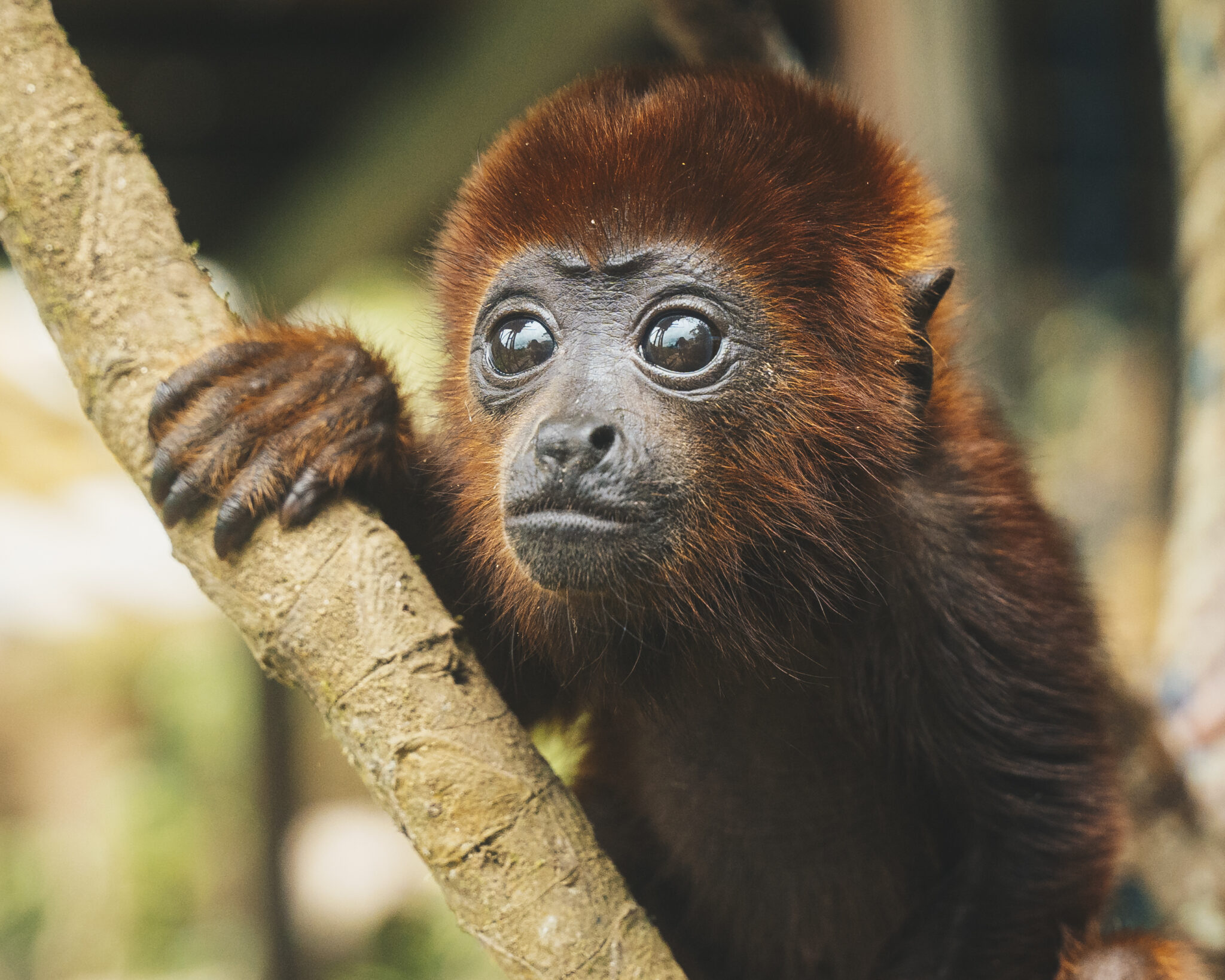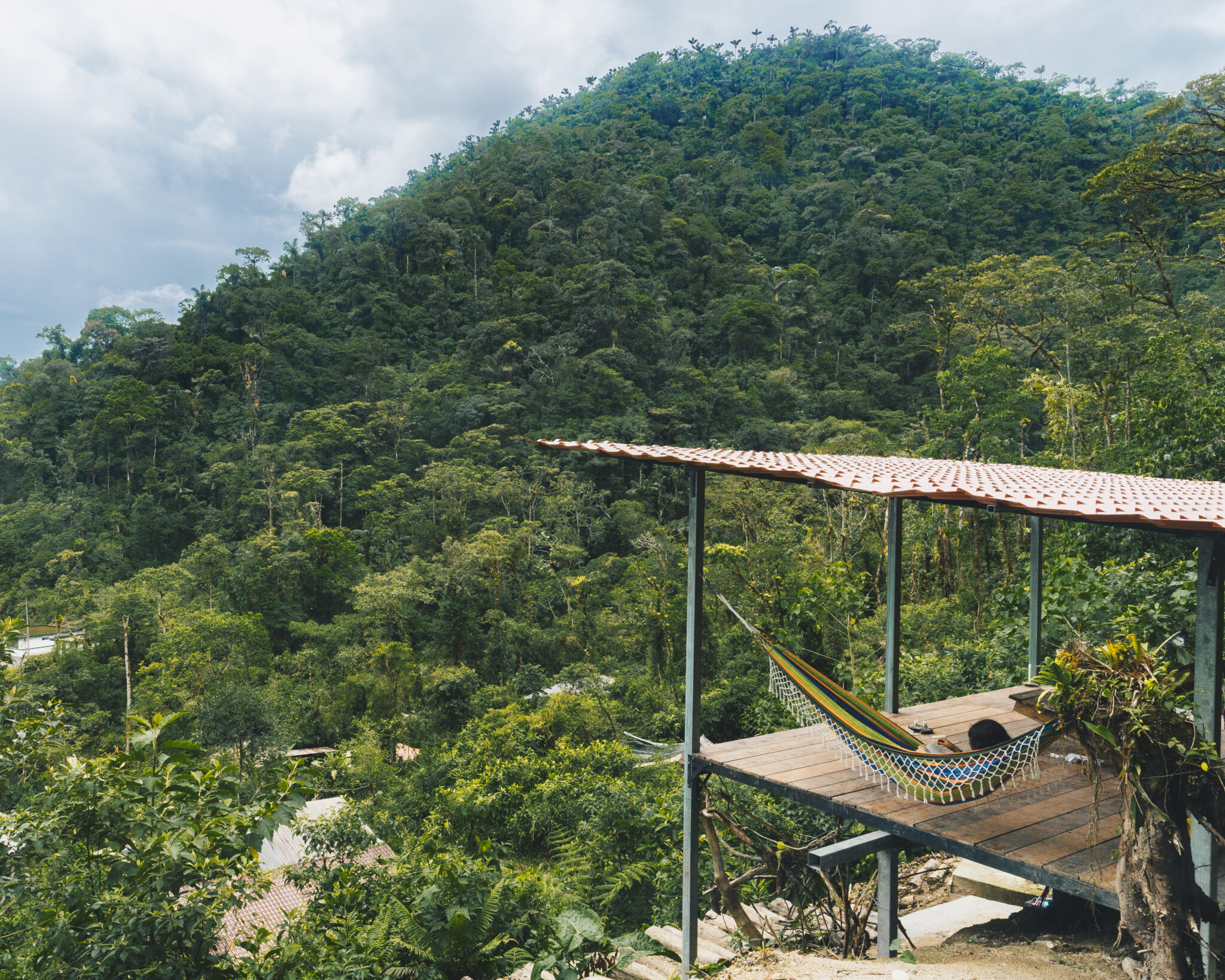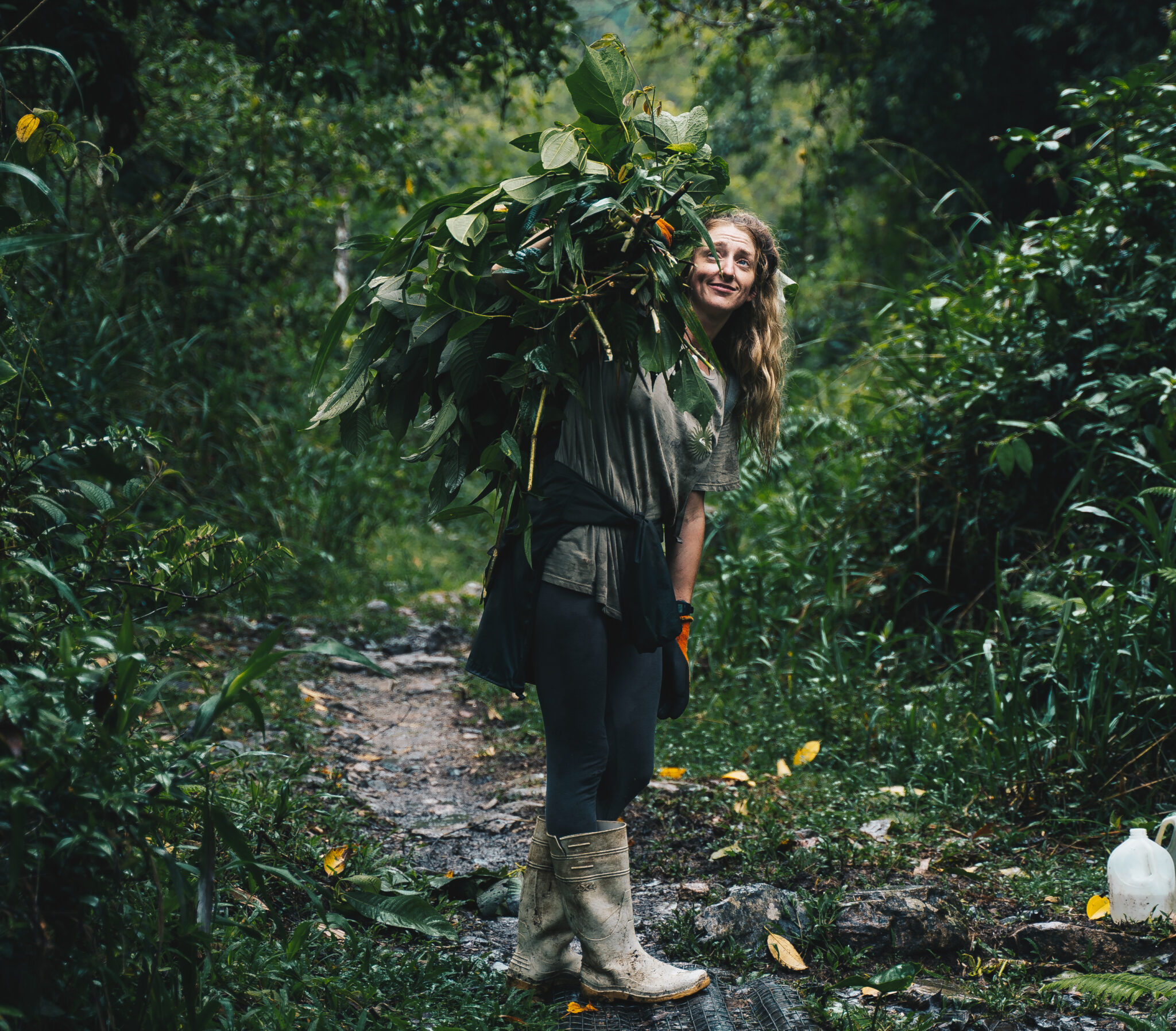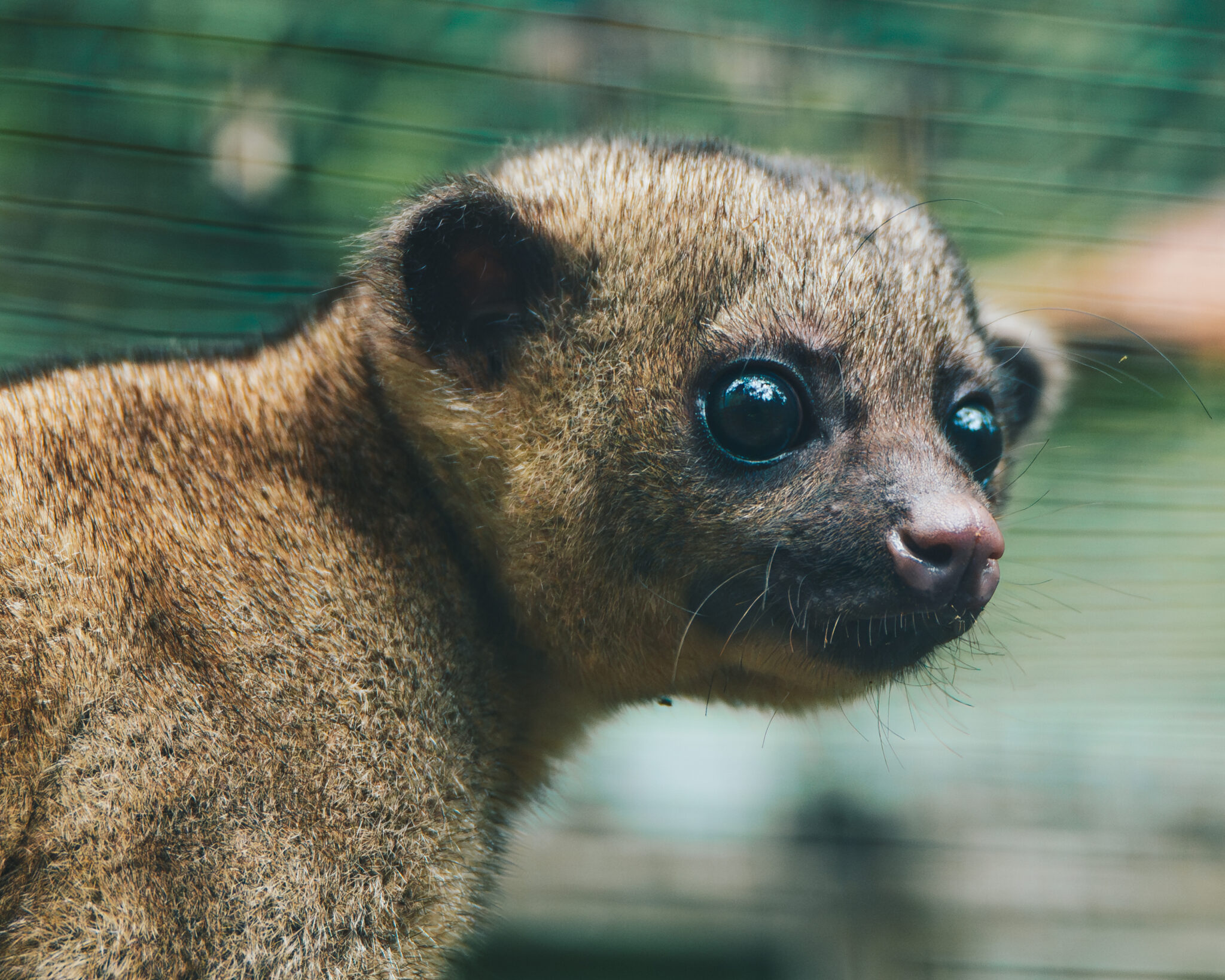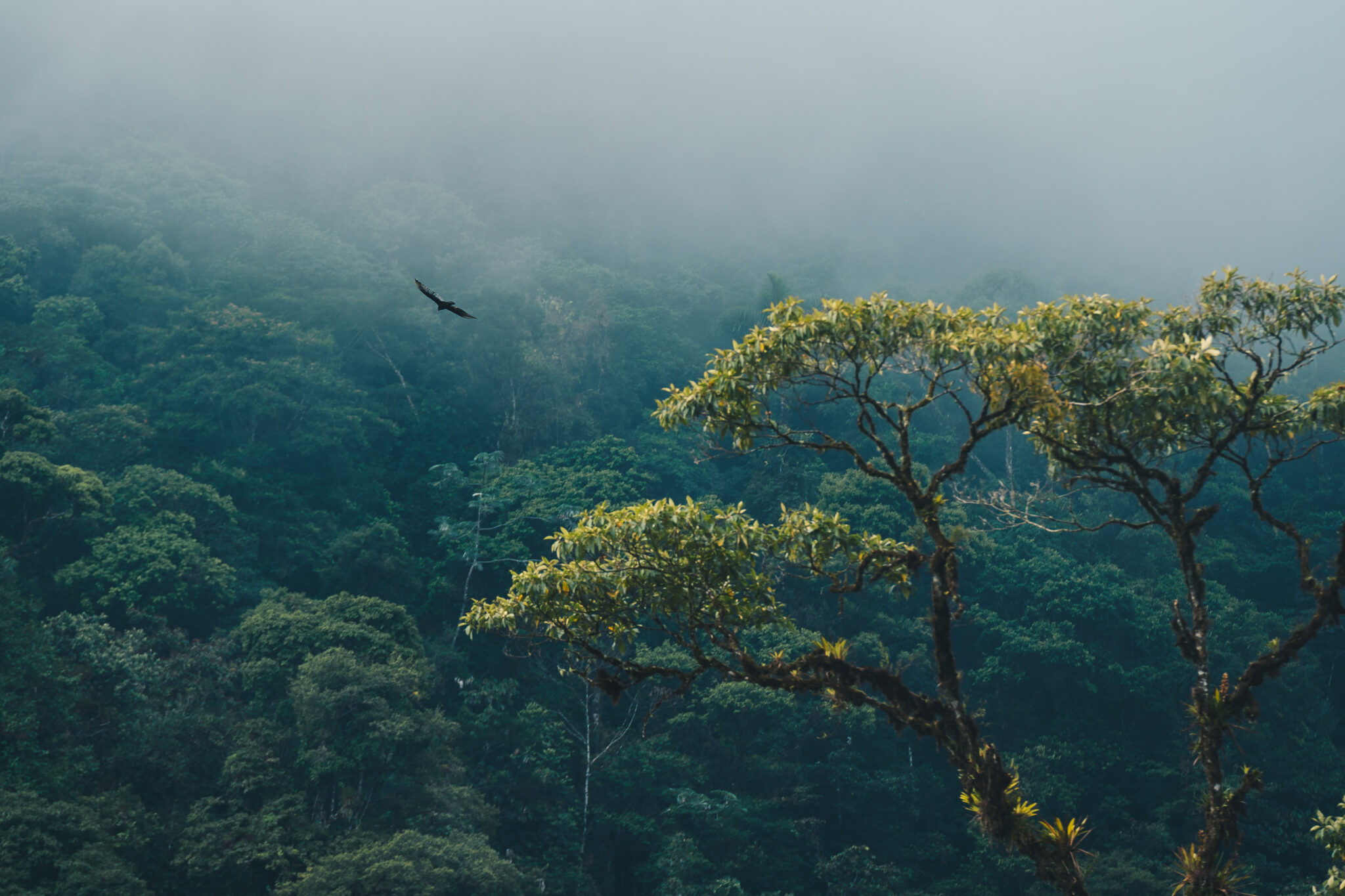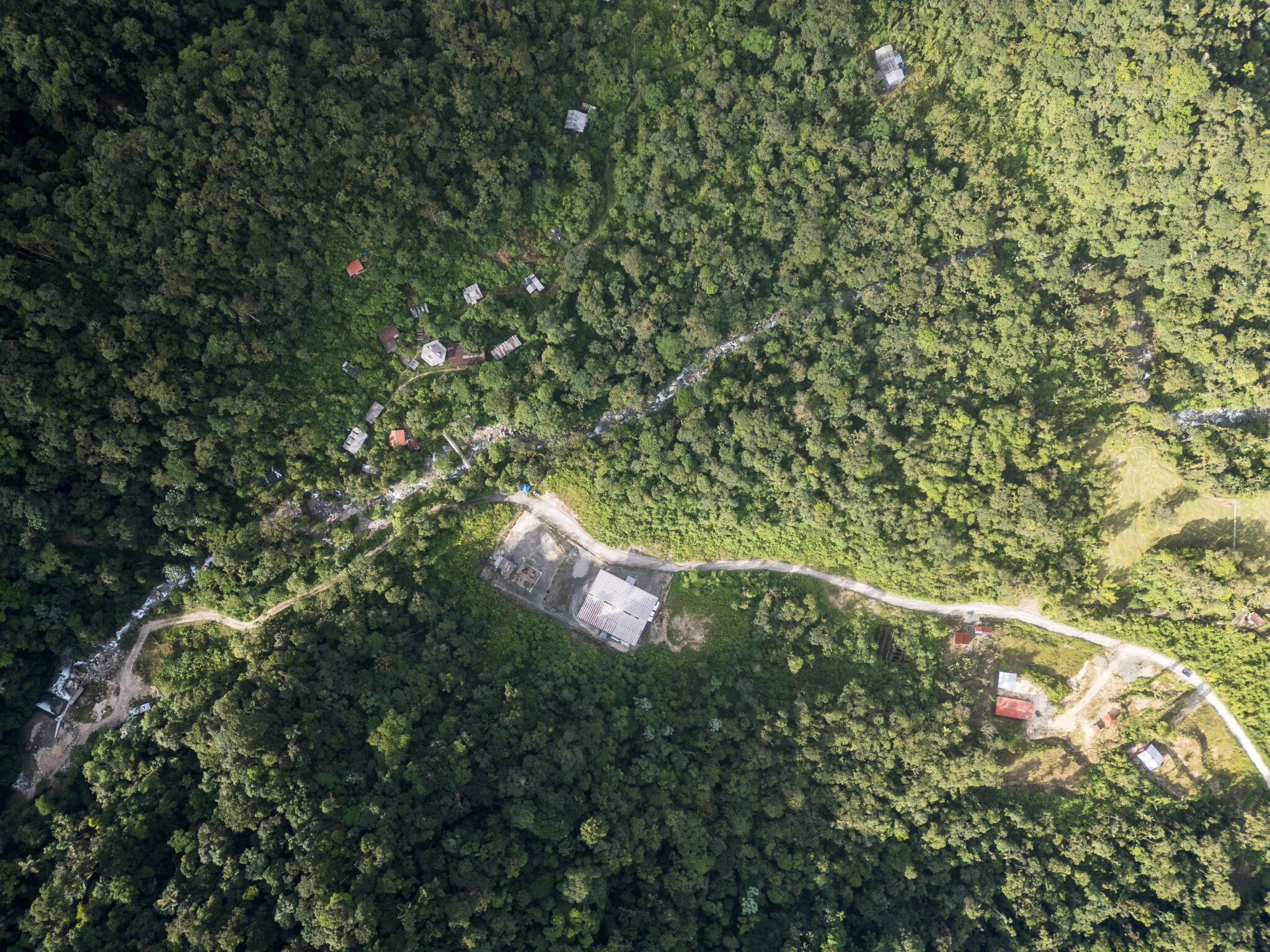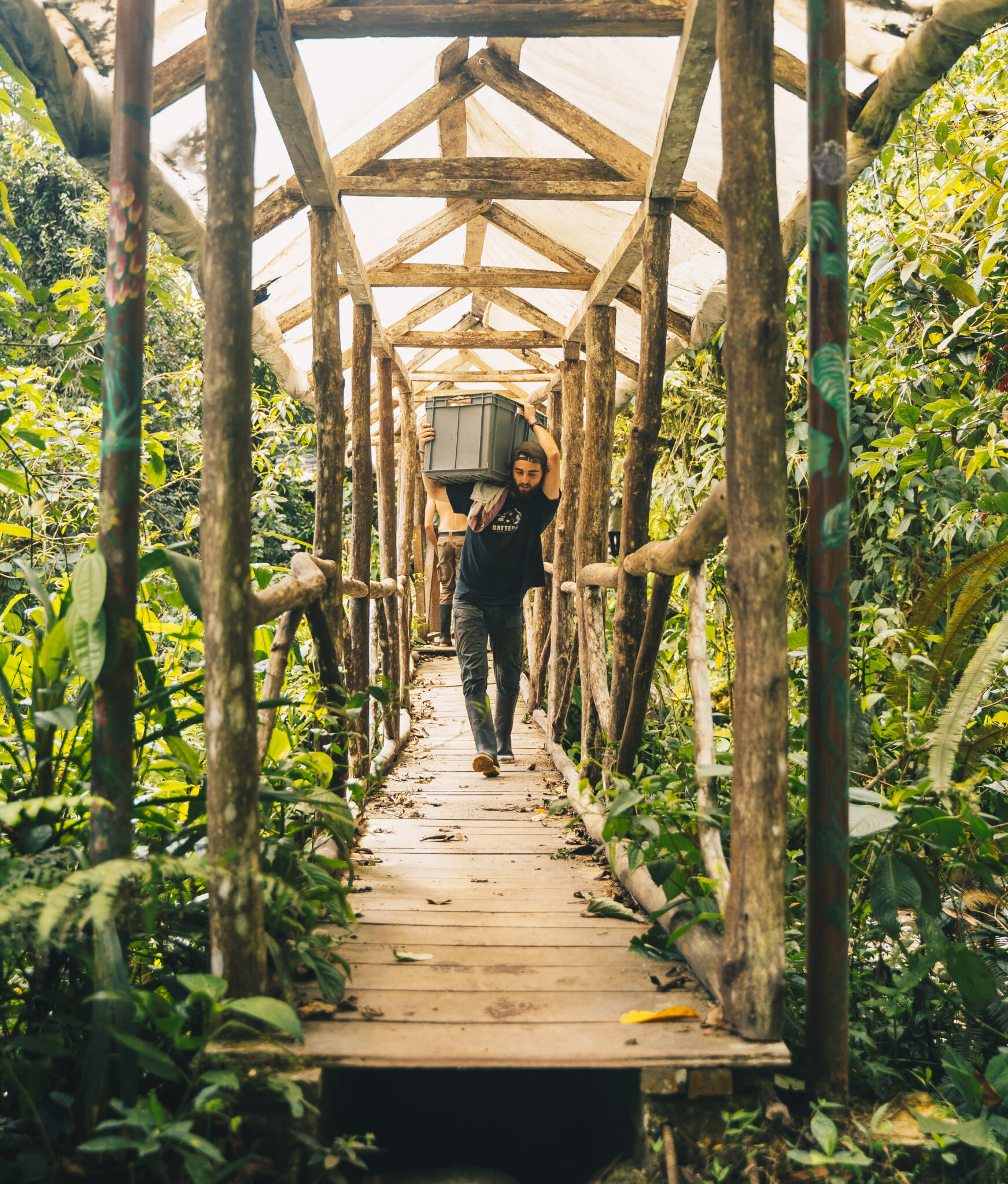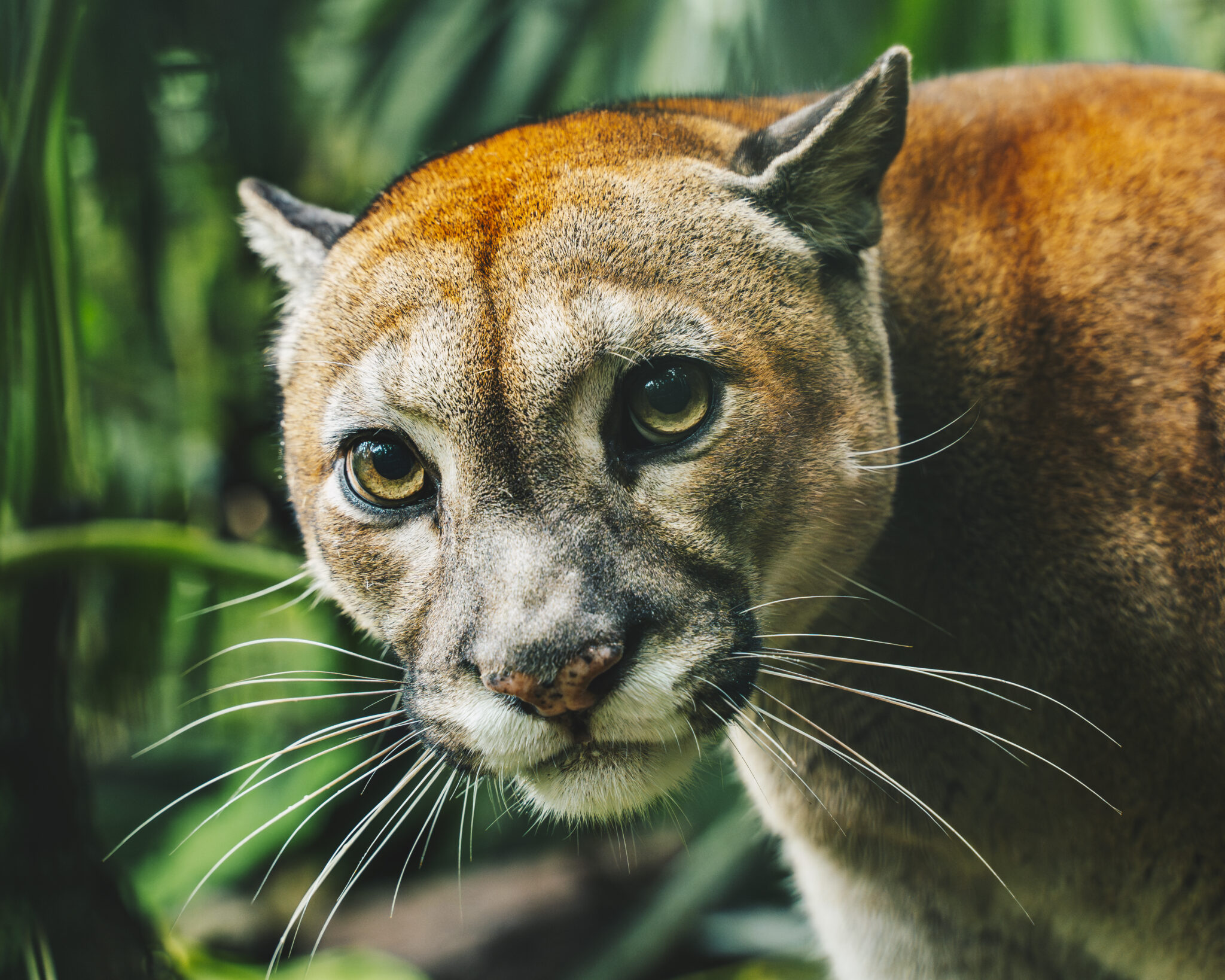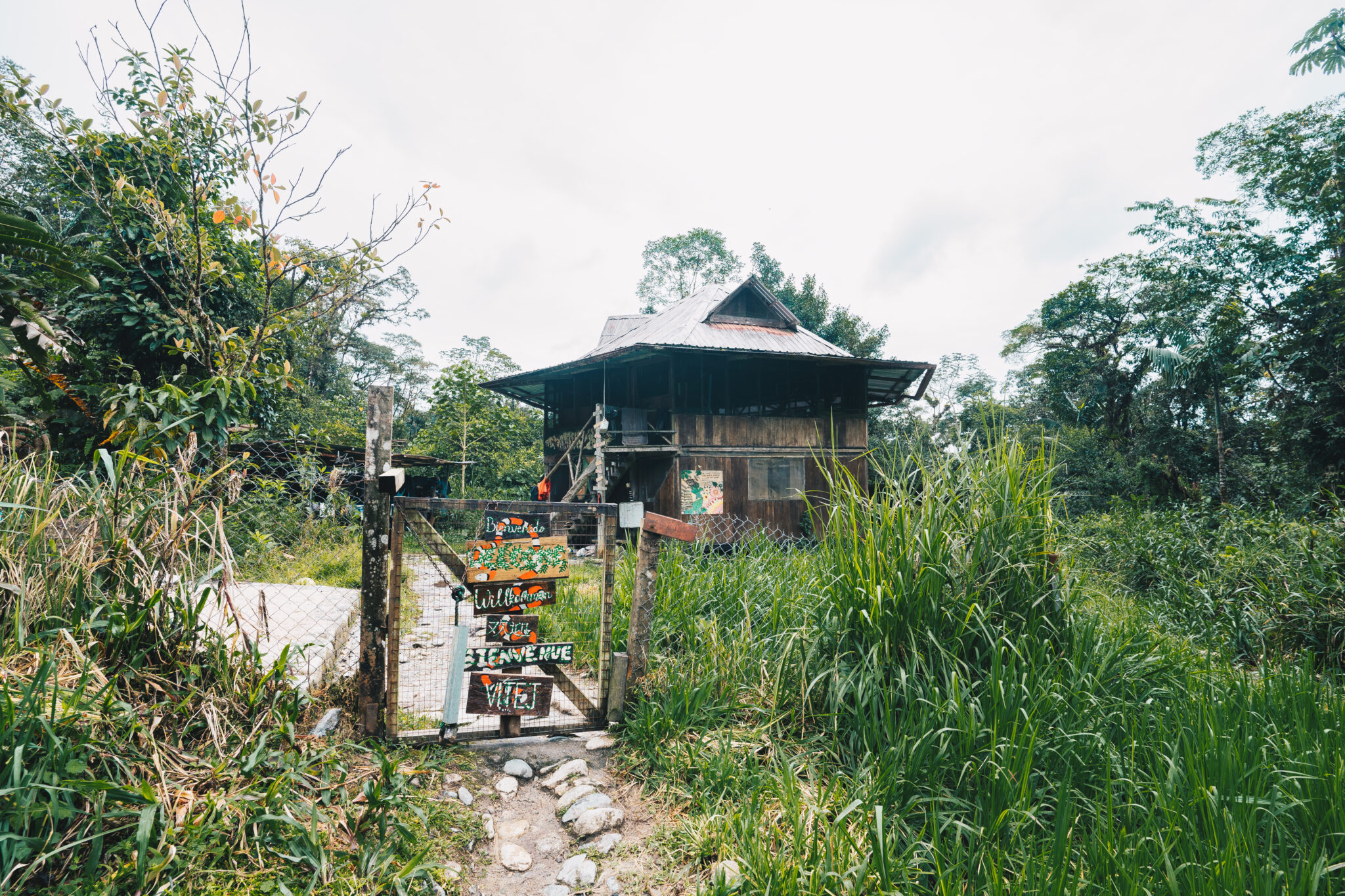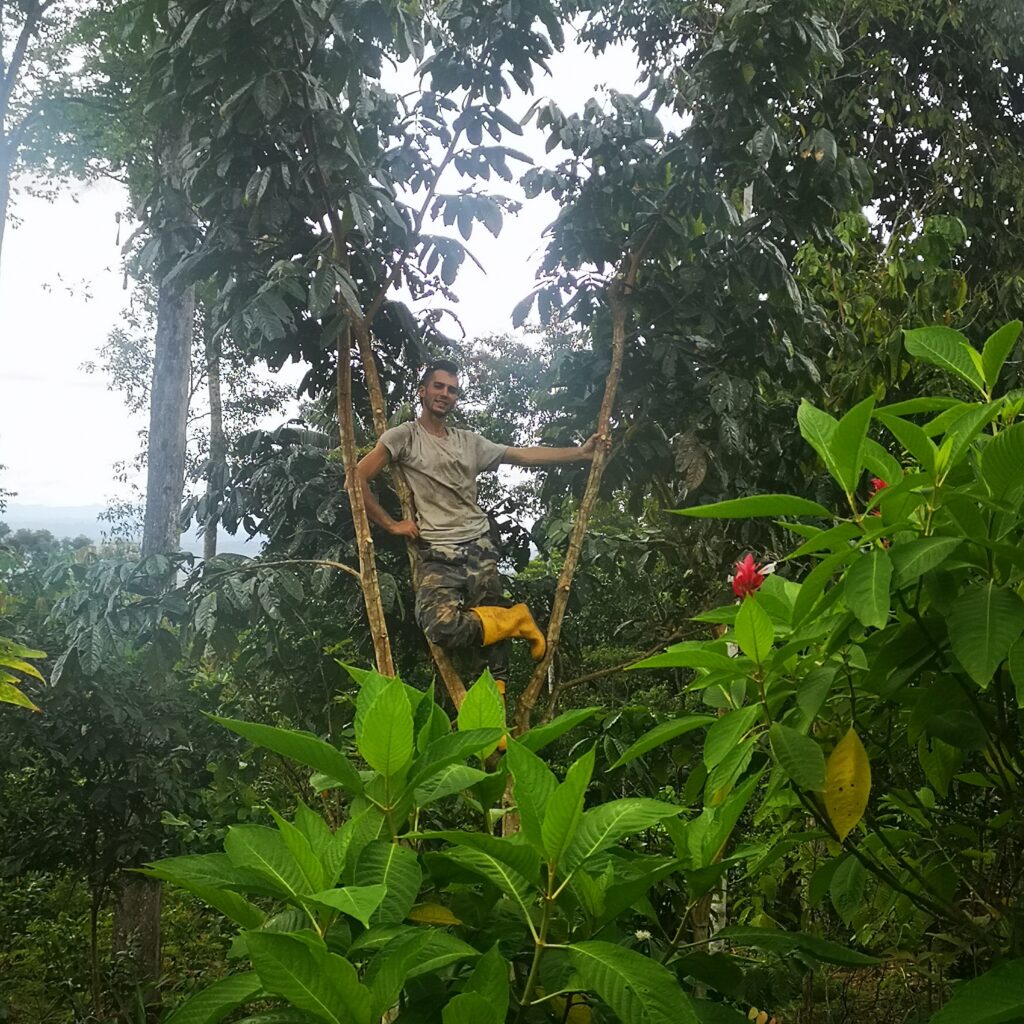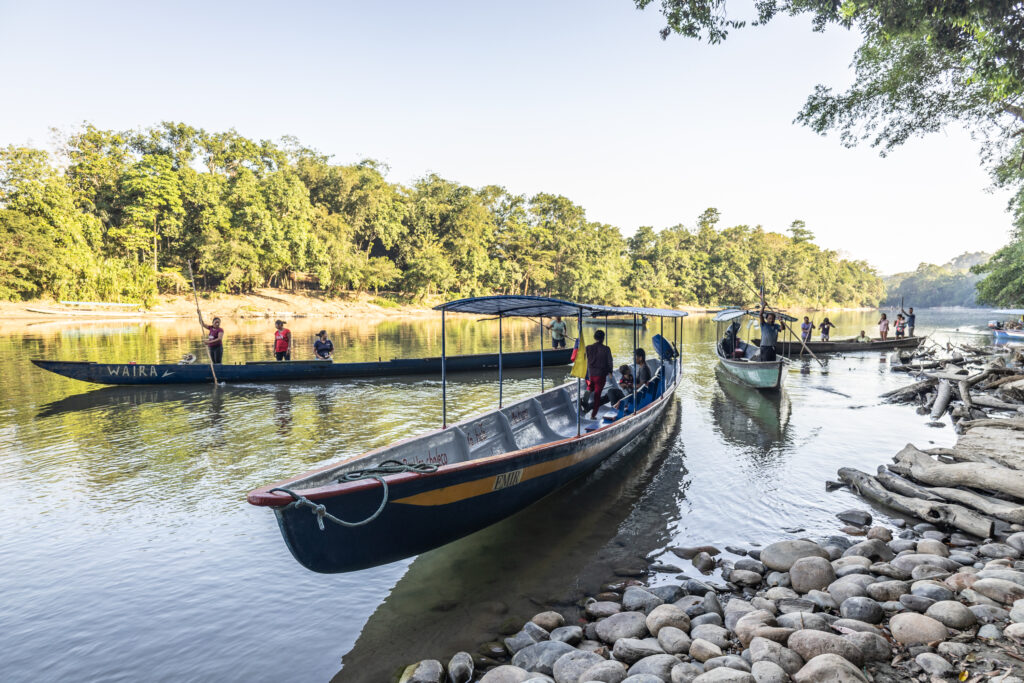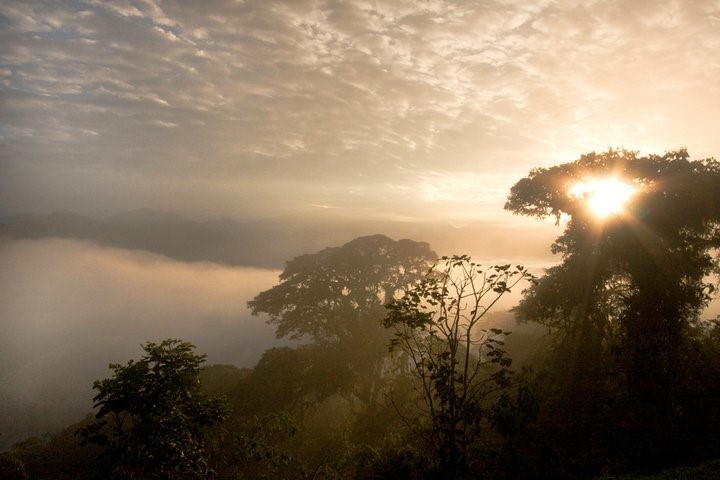Ecovolunteering in Ecuador: join a wildlife refuge to care for, rehabilitate and release animals in the Amazon. All missions in Ecuador here
Rehabilitation center in the Ecuadorian Amazon
Our partner runs a wildlife rehabilitation center in the heart of a 100-hectare rainforest reserve near the town of Mera, in the Ecuadorian Amazon. Since 2004, when the refuge was created, its team has been caring for animals that have fallen victim to illegal trafficking and deforestation, rehabilitating them before releasing them whenever possible. Our partner's approach is professional and hands-off. Everything is designed to minimize the human footprint on the animals to maximize their chances of returning to the wild.
By joining this center in the heart of the rainforest, you will be working in the heart of Amazonia on a site entirely dedicated to conservation, far from mass tourism, in an ethical and rehabilitation & release-oriented way.
Volunteer action
The center welcomes volunteers from all over the world who support the team in daily care and maintenance of the refuge. On site, there are usually 10 to 20 volunteers who help feed, clean and enrich the enclosures of over 100 animals: monkeys (capuchins, woolly, howlers, tamarins...), parrots, kinkajous, small mammals, and occasionally felines (e.g. puma), mostly entrusted by the Ecuadorian Ministry of the Environment after confiscation from the illegal trade.
On a day-to-day basis, you will join an international team and take part in a wide range of practical tasks to promote animal welfare and conservation:
- Ration preparation and feeding (several rounds a day) according to precise protocols.
- Cleaning and maintenance of enclosures to ensure hygiene and safety.
- Environmental enrichment (perches, structures, food and sensory stimulation) to encourage natural behavior.
- Support for projects to improve the center: small jobs, repairs, trail development, simple maintenance.
- Rehabilitation support: behavior observation, strict adherence to "hands-off" policy, gradual preparation of animals for release(merazonia.org).
You will be supported by the permanent team and more experienced volunteers, with a structured working environment and clear routines adapted to the needs of the refuge (and the animals being cared for at the time). The aim is to minimize stress for the wildlife while ensuring a high standard of care.
- Departures are possible all year round (subject to availability).
- Minimum 3 weeks
- The mission fees enable the center to finance the care and feeding of the animals, as well as the logistics involved in welcoming the volunteers.
Fee sliding scale (USD) :
- Weeks 1 to 3: USD 160/week
- Weeks 4 to 6: USD 140/week
- From week 7: $115/week
Included: accommodation in mixed dormitory, meals, boots (up to size EU 46), clean sheets, blankets, hot showers and contribution to veterinary care and animal feed.
Not included: personal expenses (toothpaste, snacks, etc.), transport, insurance.
- Direct impact on the rehabilitation and release of illegally trafficked animals, within a strictly ethical framework (no tourism, no unnecessary interaction).
- Immersive experience in the Amazon rainforest on a 250-acre private reserve, with exceptional biodiversity.
- Diversity of species: primates (capuchins, woolly, howlers, tamarins), parrots, kinkajous, small mammals - > 100 animals cared for depending on the period.
- Structured learning of care protocols and enrichment, as part of an international team (10-20 volunteers).
- Transparent, sliding-scale fees including accommodation and meals; your contribution directly finances the food, care and running of the refuge.
- Minimum age: 18.
- Minimum recommended duration: 3 weeks (longer stays encouraged).
- Languages: English and/or Spanish - Intermediate level.
- Physical fitness: comfortable in tropical terrain (heat, humidity, slopes, rain) and with daily physical tasks.
- Ethics: imperative compliance with the "hands-off" policy (no unnecessary handling, no selfies/contacts), with priority given to reintroduction.
The shelter usually welcomes 10 to 20 volunteers at any one time; you'll be working in an international team in a demanding environment, with procedures and schedules defined by the animals' welfare.
- Location: the refuge is located in the Amazon rainforest, near Mera (Pastaza). The site is isolated in the middle of nature, to guarantee the tranquillity of the animals being rehabilitated.
- Lodging & living on site: you'll be accommodated in mixed dormitories or single cabins, with access to hot showers. Boots are provided (up to size 46 EU), as well as sheets and blankets. Food is included in the cost; the team organizes the logistics of shopping/meals according to needs and rotations. Communal areas are simple but adapted to jungle life.
- Supervision & equipment : you'll receive a presentation of the site, care protocols and basic equipment (boots). Bring light, quick-drying clothing, raincoat, headlamp, insect repellent, water bottle, first-aid kit and external battery.
- Arrival: The refuge asks volunteers to arrive on Monday or Thursday, between 4 and 6 p.m., so that we can best organize your welcome. The nearest international airport is Quito (Mariscal Sucre International Airport), where you'll find plenty of hotels and hostels nearby to spend the night if necessary. From Quito, go to the Quitumbe bus terminal, located in the south of the city (about 40 minutes by cab, between 10 and 15 USD). It can also be reached by metro from the city center (0.45 USD - the airport is not connected to the metro).
From Quitumbe, take a bus to Puyo or Macas, all of which pass through the town of Mera (approx. 4.30 hrs, costing around 8 USD). Get off at Mera's main square, along the main road. From there, take a local Transmera cab, which will take you to the refuge entrance for around 5 USD. Transmeras run all day until around 8 p.m.
As the sun sets at around 6.30 p.m., it is advisable to leave Quito between 11 a.m. and 1 p.m. to arrive before dark. The most frequent bus companies are San Francisco, Expreso Baños, Pelileo or Amazonas. You can also stop off in Baños, a charming spa town just 1 h from Mera, before continuing on your way.
Your free time (variable according to animal needs) allows you to :
- to relax in a calm and unspoilt jungle environment;
- exchange ideas with volunteers from all over the world;
- explore the surrounding area (as recommended by the team: small town of Mera, Amazonian nature).
The project is located outside the tourist circuit; the spirit is above all conservation & rehabilitation. Where appropriate, the team will be able to indicate

About the partner association
Our partner is a Dutch-Ecuadorian Foundation recognized by the Ecuadorian Ministry of the Environment. It runs a refuge created in 2004, dedicated to the rescue, rehabilitation and release of wild animals that have fallen victim to illegal trafficking and deforestation in the Ecuadorian Amazon. Located on a 100-hectare rainforest reserve near Mera, the center is home to over a hundred animals - monkeys, parrots, kinkajous, coatis, felines - entrusted to it by the Ministry of the Environment. Its approach is based on a strict "hands-off" ethic, guaranteeing the well-being and reintegration of the species into their natural habitat.

